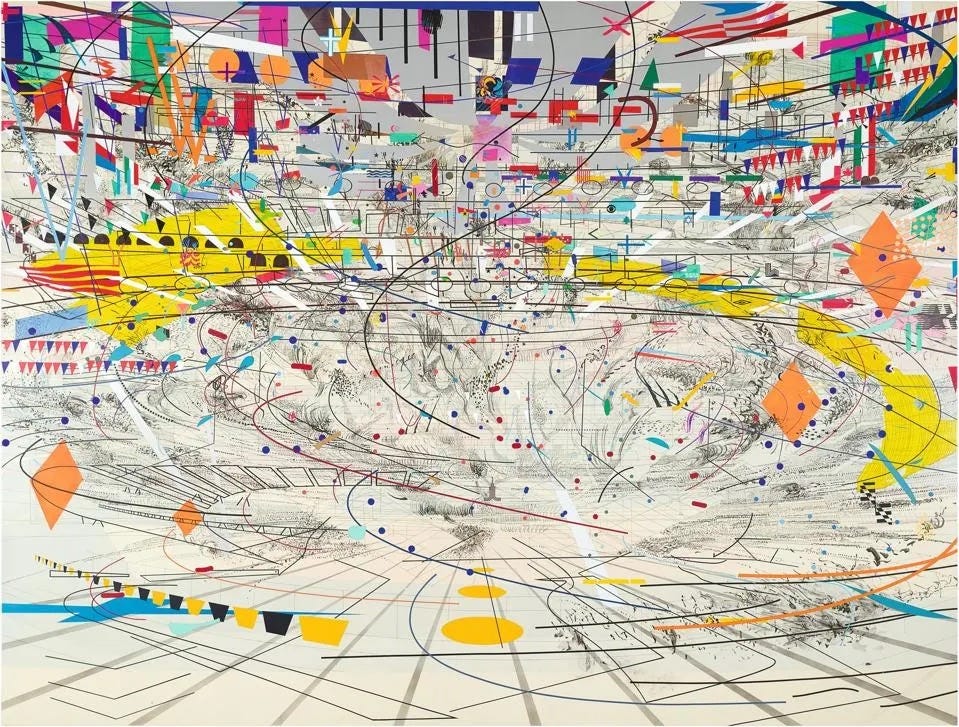On Superintelligence and the Future of Humanity
Developing a new understanding of human potential
We’re at an inflection point in the history of the human race. Within the next few years, it seems increasingly likely that some form of superintelligence will emerge. If it does come to fruition, humans will be faced with a number of existential questions about our own mortality and development as a species.
How will superintelligence fit into our “human” world?
How do we evolve as a species?
How will technology change our lives?
This is a Pandora’s Box event. Our lives, as we know them, will be irreversibly changed.
As we stand at this unprecedented crossroads, the emergence of superintelligence offers not just technological advancement, but a fundamental reimagining of what it means to be human.
Far from the dystopian scenarios often portrayed in science fiction, superintelligence presents an extraordinary opportunity for humanity to evolve, thrive, and transcend biological limitations we once thought immutable.
Understanding Superintelligence
There’s a lot of competing thought on how we should define superintelligence, but I think Bostrom offers the most compelling definition. In his pivotal book, Superintelligence: Paths, Dangers, Strategies, he defines superintelligence as:
“A general intelligence significantly greater than human-level intelligence, capable of learning, interpreting data, making decisions, and recognizing risks.”
This isn’t merely an incremental improvement over current AI systems, but a massive leap that will transform every aspect of society.
Superintelligence will possess capabilities that extend far beyond application to specialized tasks. It will excel at strategic thinking and long-term planning, demonstrate sophisticated engineering skills, and exhibit remarkable problem-solving abilities across domains.
What makes superintelligence truly revolutionary is its capacity to understand, learn, and innovate at a scale and speed that dwarfs human capabilities.
Evolving together
Throughout history, humans have used technology to transcend biological limitations–from the use of fire to modern medical interventions. Technological innovation has always been intertwined with human progress.
What makes our current moment unique is the shift from enhancing external products and services to augmenting human beings themselves.
Although innovation is intrinsic to human progress, the stakes are higher when we become the product rather than merely the users of technology. Yet, this shift doesn’t diminish our humanity–it amplifies it, offering unprecedented possibilities for health, knowledge, and fulfillment.
Five Dimensions of Human Flourishing
Superintelligence opens pathways to human enhancement across multiple dimensions:
Resource Abundance
AI, nanotechnology, and biotechnology together could create a future where resources are plentiful, basic needs are met, and human well-being becomes the central metric of success.
By optimizing resource allocation, superintelligence could help eliminate scarcity that has plagued humanity throughout history.
Life-spans and Longevity
Advances in biotechnology and regenerative medicine, accelerated by superintelligent systems, could dramatically extend human lifespans. This rejection of age-related diseases and mortality should not be seen as a selfish pursuit, but as a recognition that death doesn’t have to be inevitable.
Healthier, longer lives gives us more time to grow, learn, and contribute to the collective good.
“Superhuman” Intelligence
Human intelligence itself can be elevated through cognitive enhancements and seamless integration with superintelligent AI systems. Information will become increasingly abundant, as will our ability to access and utilize it.
Technologies like Neuralink and (yet to be invented!) advanced brain-computer interfaces present the opportunity to complement and expand human thinking, not just replace it.
Better Democracy
The integration of technology in governance could lead to more transparent and participatory decision-making.
By providing citizens with better information, facilitating meaningful engagement, and reducing barriers to participation, superintelligence could help realize democratic ideals that have always been constrained by practical limitations.
Elevated Happiness
Perhaps most profound is the potential for superintelligence to enhance emotional well-being and reduce suffering.
Advanced technology could create environments where people naturally experience greater kindness, joy, and enlightenment–not through artificial manipulation, but by addressing the biological and social roots of suffering.
Future Human Roles and Finding Purpose in a New World
I think the key challenge isn’t just figuring out what our role is in this new superintelligence world, but also ensuring that we don’t lose sight of what makes us uniquely human in the process.
Personally, I’m a big proponent of Bryan Johnson’s “Don’t Die” philosophy. In short, by embracing the potential of superintelligence and challenging our fundamental assumptions about what it means to be human and our own mortality, we can unlock unprecedented possibilities for growth, development, and long-term survival.
Here are some of my key takeaways from meeting Bryan this year and how we can apply them to our lives in this new world:
Overcoming Existential Depression
Many high-achievers in today’s world struggle with hidden depression. There’s a commonality of hidden suffering in the high-achieving world. At a recent talk I attended, a majority of the entrepreneurs and leaders sitting around me echoed with Bryan that they too have faced depression and feelings of unfulfillment in their lives.
Superintelligence offers hope by helping us address the fundamental sources of this widespread suffering–providing purpose, connection, and meaning in a rapidly changing world. By freeing us from routine labor and extending our lives, it creates space to explore what truly fulfills us as conscious human beings.
Zeroth Principle Thinking
Bryan introduced me to the idea of “zeroth principle thinking” – identifying assumptions so deeply ingrained that we don’t even recognize them as assumptions. Superintelligence will help us question fundamental beliefs about human potential, consciousness, and social organization that have limited our growth.
Consider how the Scientific Revolution in the 16th and 17th centuries completely changed the way we think about the world. The discoveries that happened during this period uprooted long-standing beliefs about the world and totally transformed society’s views on nature, paving the way for economic developments and massive changes in the political structure of civilization.
The superintelligence cognitive revolution could be just as significant. A continuous questioning of our core beliefs and assumptions may reveal entirely new paradigms for understanding ourselves and our place in the universe.
Entropy as the Ultimate Challenge
Bryan identifies entropy–the universe’s tendency toward disorder–as the “final boss” we must defeat. Aging, disease, resource depletion, and social decay are all manifestations of entropy. Superintelligence could offer powerful tools to combat these forces, extending not just individual lives, but the viability and vitality of human civilization itself.
Re-evaluating Meaning and Purpose
Inclusivity will need to be the overarching ideal shaping the way we define our new meaning and purpose as a species and as a society. With superintelligence, the goal shouldn’t be just technological advancement but developing the fundamental operating system correct for the entire human species. Not one company, not one person, but for everyone.
By approaching AI development thoughtfully, we can create systems that amplify human potential rather than diminish it. This requires careful attention to goal alignment and ethical frameworks, ensuring that superintelligent systems share our deepest values.
Embracing a Bright Future
As we stand on the precipice of this new era, humanity faces not just technological questions but philosophical ones: What kind of future do we want to create? How can we ensure that superintelligence enhances rather than diminishes the human experience?
The answers will emerge not from technology alone, but from humanity’s collective wisdom and vision. By embracing superintelligence thoughtfully, we can create a future where humans and intelligent machines work in tandem to create a world of abundance, longevity, wisdom, and joy that previous generations could only dream of.
On that note, no matter how advanced AI becomes, certain aspects of the human experience remain irreplaceably valuable. Your parents don’t want to speak to another person, or an AI, or even an AI version of you. They want to speak to you.
The lived experience of being human–with all its joys, sorrows, and ineffable moments of connection–cannot be replicated. There will always be value in human counsel, empathy, and artistic expression rooted in a shared, embodied experience.
The future belongs not to machines alone, nor to humans unchanged, but to a new synthesis that amplifies the best of both.





